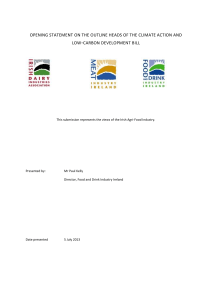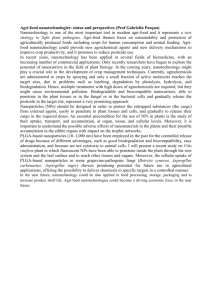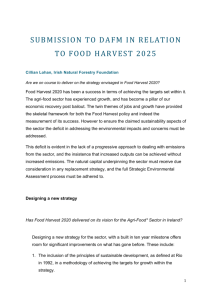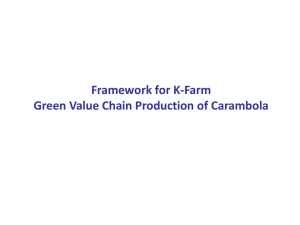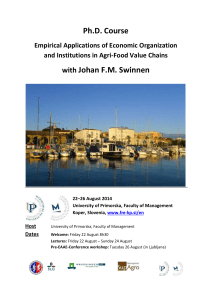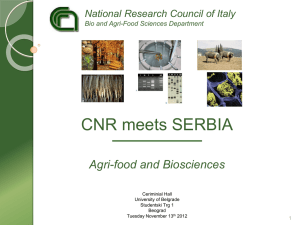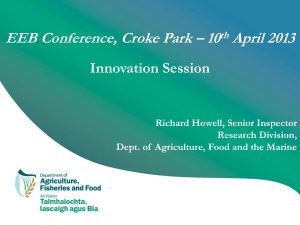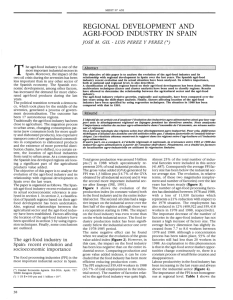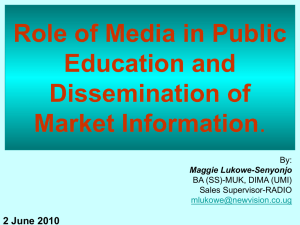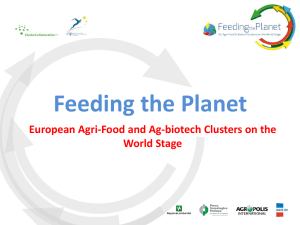Economic Fundamentals of the Agri
advertisement
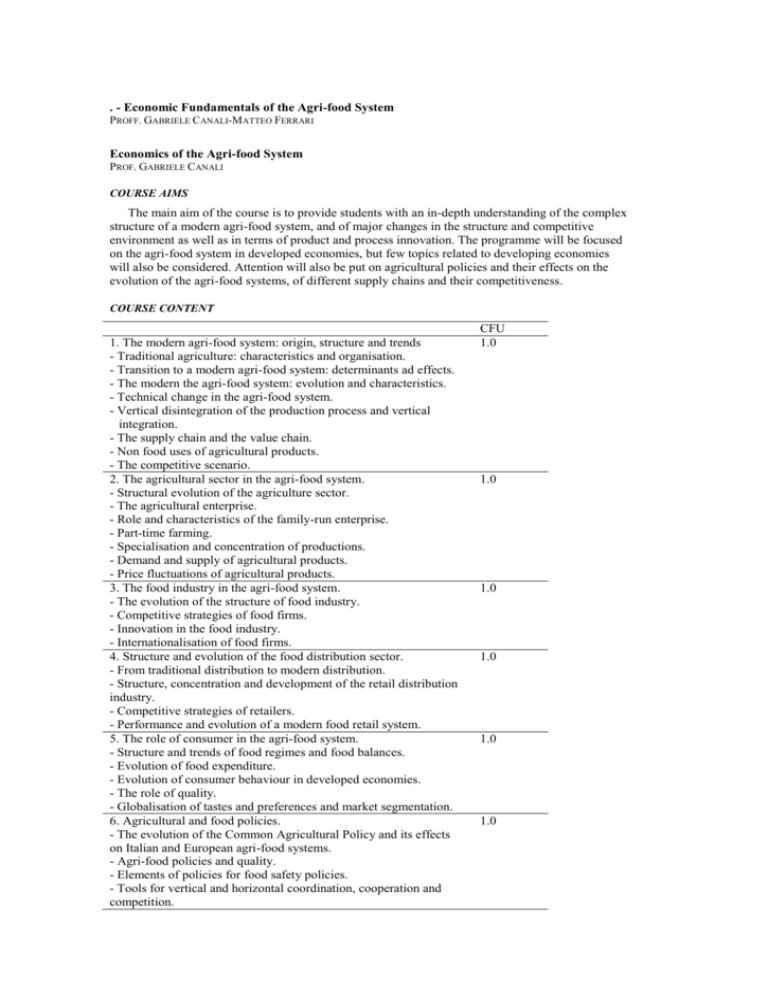
. - Economic Fundamentals of the Agri-food System PROFF. GABRIELE CANALI-MATTEO FERRARI Economics of the Agri-food System PROF. GABRIELE CANALI COURSE AIMS The main aim of the course is to provide students with an in-depth understanding of the complex structure of a modern agri-food system, and of major changes in the structure and competitive environment as well as in terms of product and process innovation. The programme will be focused on the agri-food system in developed economies, but few topics related to developing economies will also be considered. Attention will also be put on agricultural policies and their effects on the evolution of the agri-food systems, of different supply chains and their competitiveness. COURSE CONTENT 1. The modern agri-food system: origin, structure and trends - Traditional agriculture: characteristics and organisation. - Transition to a modern agri-food system: determinants ad effects. - The modern the agri-food system: evolution and characteristics. - Technical change in the agri-food system. - Vertical disintegration of the production process and vertical integration. - The supply chain and the value chain. - Non food uses of agricultural products. - The competitive scenario. 2. The agricultural sector in the agri-food system. - Structural evolution of the agriculture sector. - The agricultural enterprise. - Role and characteristics of the family-run enterprise. - Part-time farming. - Specialisation and concentration of productions. - Demand and supply of agricultural products. - Price fluctuations of agricultural products. 3. The food industry in the agri-food system. - The evolution of the structure of food industry. - Competitive strategies of food firms. - Innovation in the food industry. - Internationalisation of food firms. 4. Structure and evolution of the food distribution sector. - From traditional distribution to modern distribution. - Structure, concentration and development of the retail distribution industry. - Competitive strategies of retailers. - Performance and evolution of a modern food retail system. 5. The role of consumer in the agri-food system. - Structure and trends of food regimes and food balances. - Evolution of food expenditure. - Evolution of consumer behaviour in developed economies. - The role of quality. - Globalisation of tastes and preferences and market segmentation. 6. Agricultural and food policies. - The evolution of the Common Agricultural Policy and its effects on Italian and European agri-food systems. - Agri-food policies and quality. - Elements of policies for food safety policies. - Tools for vertical and horizontal coordination, cooperation and competition. CFU 1.0 1.0 1.0 1.0 1.0 1.0 READING LIST There is no specific course textbook. A reading list will be distributed at the end of each section of the course. TEACHING METHOD The course will be based on lectures, supported by the use of overhead slides, and supplemented with topicspecific discussions, seminars and group projects. ASSESSMENT METHOD An intermediate written test (40%), a final written examination (50%), participation in the group work and assignments (10%) will all contribute to the final grade. Professor Gabriele Canali will receive students at the times posted. Agricultural and Food Legislation PROF. MATTEO FERRARI COURSE AIMS The course aims at providing a first introduction to food law through the comparative analysis of some selected topics. COURSE CONTENT Introduction and historical development. Introduction to some basic legal concepts; the historical development of food law. Food safety and food information. Food safety at national level. Food safety at International level. Food labelling: general regulation, nutritional and health claims. Quality, certifications and selected topics. Geographical indications, trademarks and patents; standards and certifications; first selected topic: the regulation of gmos; second selected topic: the regulation of organic food. CFU 1.5 1.0 1.5 READING LIST The readings will be specified at the beginning of the course and will consist in legislative materials, court decisions and journal articles. TEACHING METHOD The teaching will consist in lectures on topics part of the program, along with presentations by the students on readings assigned by the instructor. ASSESSMENT METHOD Evaluation will be based on group and individual works by the students. In particular, students will present some readings assigned by the instructor (group work) and develop a case study (individual work). Professor Matteo Ferrari will riceive students at the times posted.
